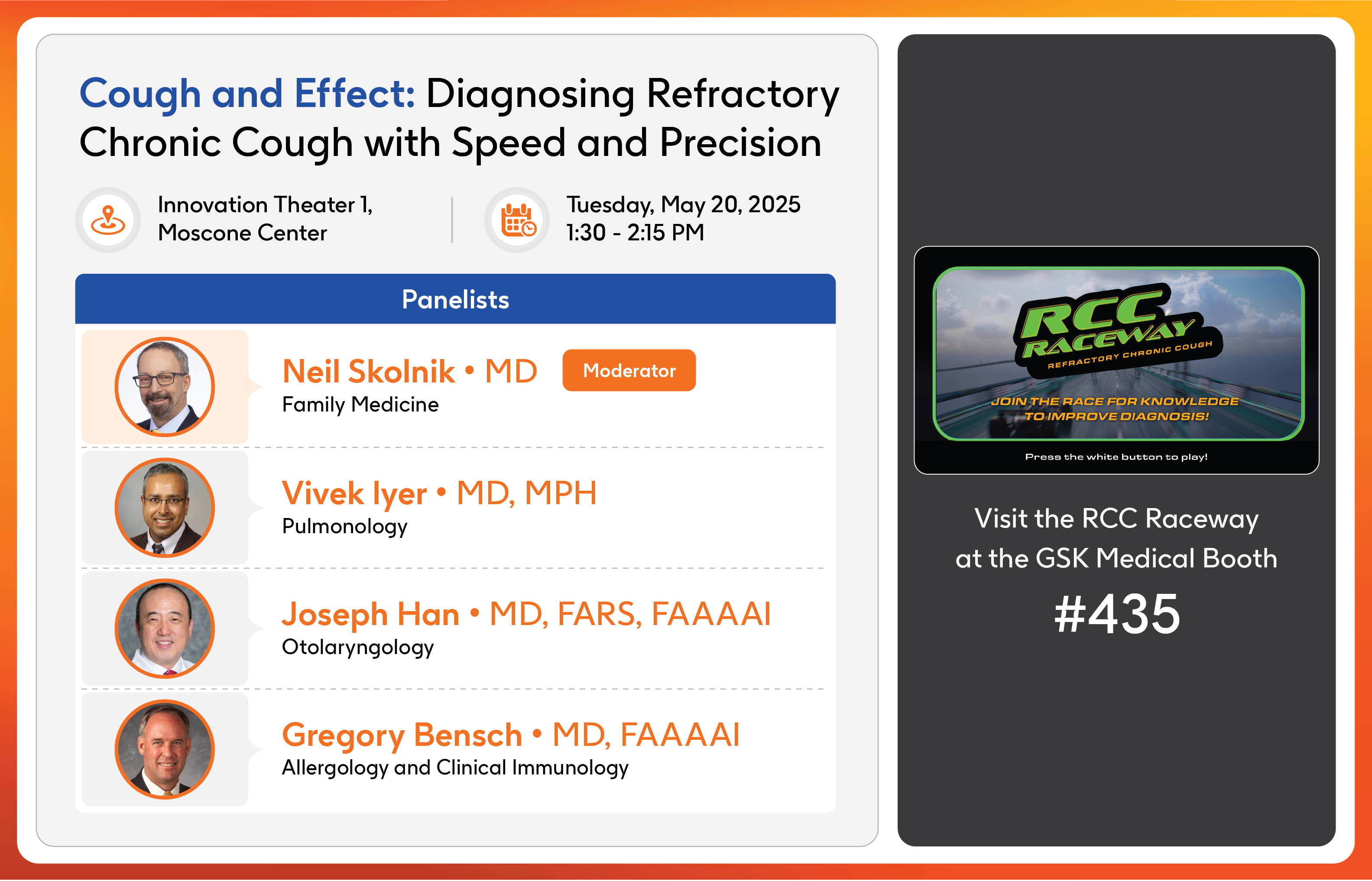Refractory chronic cough (RCC) is a distinct disease identified in a subset of people who experience chronic cough, which is defined as a cough lasting >8 weeks.1-3. In people living with RCC, a long-term cough persists despite thorough investigation and adequate treatment for known cough-related etiologies. Research is now showing that RCC is associated with neuronal hypersensitivity and hyper-responsiveness, which may result from disruptions in the airway nerve pathways. 2,4,5
The persistent, daily nature of the cough in RCC can profoundly affect a person’s quality of life, causing not only physical discomfort, but disruption of both their social life and work.6,7 The pathway to diagnosis of RCC is complex and often lengthy, as it often involves numerous specialist visits, prolonged diagnostic testing and trials of treatments.1,3,8
More efforts are needed to better identify people living with RCC and optimize their diagnosis pathway. Come join GSK Medical to learn more about RCC as a disease, how to identify RCC in clinic and steps to diagnosis at our activities at ATS 2025:
- Innovation Theater 1 on Tuesday, May 20th from 1:30-2:15 PM for our multidisciplinary expert panel, ‘Cough and Effect: Diagnosing Refractory Chronic Cough with Speed and Precision.’ Specialists will review and discuss hypothetical cases and offer insights on the optimal approach to diagnosing RCC.
- GSK Medical Booth #435 – You can take a turn at the wheel and explore the path to diagnosis in our RCC Raceway arcade. You can also learn more about the disease and hear directly from patients in our interactive touchscreen.
All materials are sponsored by GSK, are non-promotional in nature, and for US Healthcare professionals only.
References: 1. Irwin et al. Chest. 2018;153:196–20. 2. Chung et al. Nat Rev Dis Primers. 2022.8(1):45. 3. Morice et al. Eur Respir J. 2020;55:1901136. 4. Satia et al. Clin Med. 2016;16(6):s92–s97. 5. Zhang et al. Purinergic Signal 2022;18(3):289-305. 6. Puente-Maestu et al. ERJ Open Res. 2023;9(5):00425- 2023. 7. Bali et al. Ther Adv Respir Dis. 2024;18:1-15. 8. Gibson et al. Chest. 2016;149(1):27-44.
PSE-US-3915; April 2025.


